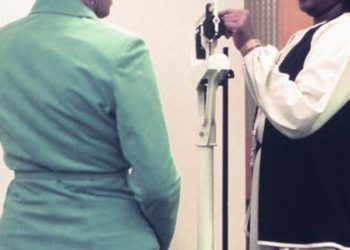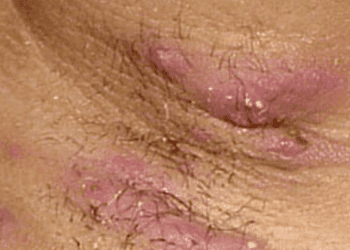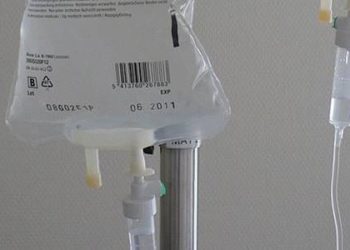Hidradenitis suppurativa associated with increased risk of subclinical atherosclerosis
1. In a prospective study of 62 patients with hidradenitis suppurativa (HS) and their matched controls, HS was associated with an increased risk of subclinical atherosclerosis in patients 40 years or older when corrected for traditional risk factors.
Evidence Rating Level: 2 (Good)
Study Rundown: HS is a chronic, inflammatory skin disease that primarily affects the intertriginous areas and manifests as painful nodules that progress to abscesses, sinus tracts, and scarring. Many chronic inflammatory disorders are associated with increased risk of atherosclerotic cardiovascular (CV) disease, with this relationship prototypically demonstrated by rheumatoid arthritis. Similarly, it is suspected that HS is associated with increased risk of CV disease. The subclinical phase of intima-media thickening that precedes the onset of clinically significant disease can be detected via ultrasound of the common carotid artery and can predict the onset of atherosclerotic diseases such as stroke and myocardial infarction. As previous epidemiological studies demonstrate an association between HS and CV outcomes, the purpose of this study was to assess the prevalence of subclinical atherosclerosis of the common carotid artery in patients with HS.
The study prospectively compared the presence of subclinical atherosclerosis in carotid arteries in 62 patients with HS and their matched controls via ultrasound. At the conclusion of the study, there was an increased association of subclinical atherosclerosis in patients with HS 40 years and older compared to controls. The results of this study suggest that strict control of atherosclerotic risk factors in patients with HS may be prudent. Matching of patients and controls with respect to age, gender, and smoking habit strengthen this study. However, this study was limited by the lack of matching of patients and controls for BMI, hypertension, or diabetes, as both HS and CV disease are associated with these factors. Furthermore, the sample size was small and only included patients of a single dermatology unit. Larger, multicenter prospective trials that match patients for these CV risk factors may improve the validity of the study results.
Click to read the study in JEADV
Relevant Reading: Increased prevalence of subclinical atherosclerosis in patients with hidradenitis suppurativa (HS)
In-Depth [prospective cohort]: This study prospectively evaluated the association between HS and subclinical atherosclerosis. Overall, this study enrolled 62 patients with moderate or severe HS (defined as Hurley stage II and III) and 62 controls matched for age, gender, and smoking habit from a single dermatology unit in Spain. Patients were assessed by B-mode carotid ultrasound for subclinical atherosclerosis, which was defined by the presence of plaques (focal thickening of the wall that is at least 50% greater than the thickness of the surrounding wall, a focal wall thickening penetrating at least 0.5 mm into the artery lumen, or a localized area with carotid intima-media thickness (cIMT)> 1.5 mm) or pathologic cIMT>0.9mm. Chi-square test was used to compare atherosclerosis between both groups and an odds ratio was calculated to quantify the magnitude of the association between HS and subclinical atherosclerosis. Six (9.7%) of the HS-patients vs. 3 (4.8%) of the control patients exhibited pathological cIMT (p=0.49), and 13 (21%) of the HS-patients vs. 10 (16.1%) of the control patients exhibited atherosclerotic plaques (p=0.49). Nineteen patients in the HS-group and 10 patients in the control group demonstrated subclinical atherosclerosis. For patients 40 years and older, univariate analysis revealed that HS was significantly associated with subclinical atherosclerosis (OR: 4.9; 95% CI: 1.8-13.1; p=0.001). However, in univariate analysis of patients of all ages, HS showed a strong tendency of association with subclinical atherosclerosis (OR: 2.3; 95% CI: 1.0-5.5; p=0.056), but was not statistically significant.
Image: CC/Wiki/Samuel Friere da Silva
©2016 2 Minute Medicine, Inc. All rights reserved. No works may be reproduced without expressed written consent from 2 Minute Medicine, Inc. Inquire about licensing here. No article should be construed as medical advice and is not intended as such by the authors or by 2 Minute Medicine, Inc.







